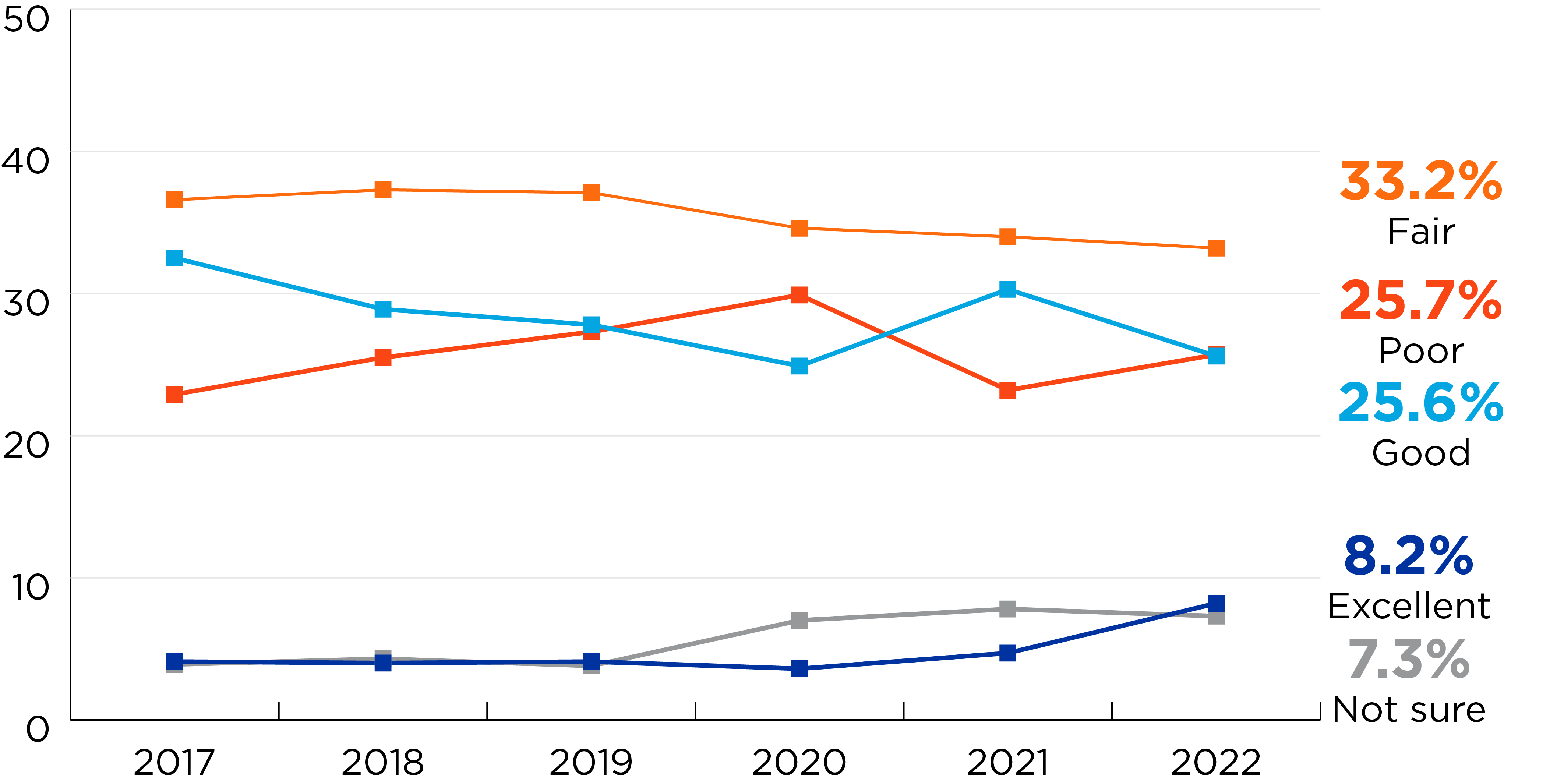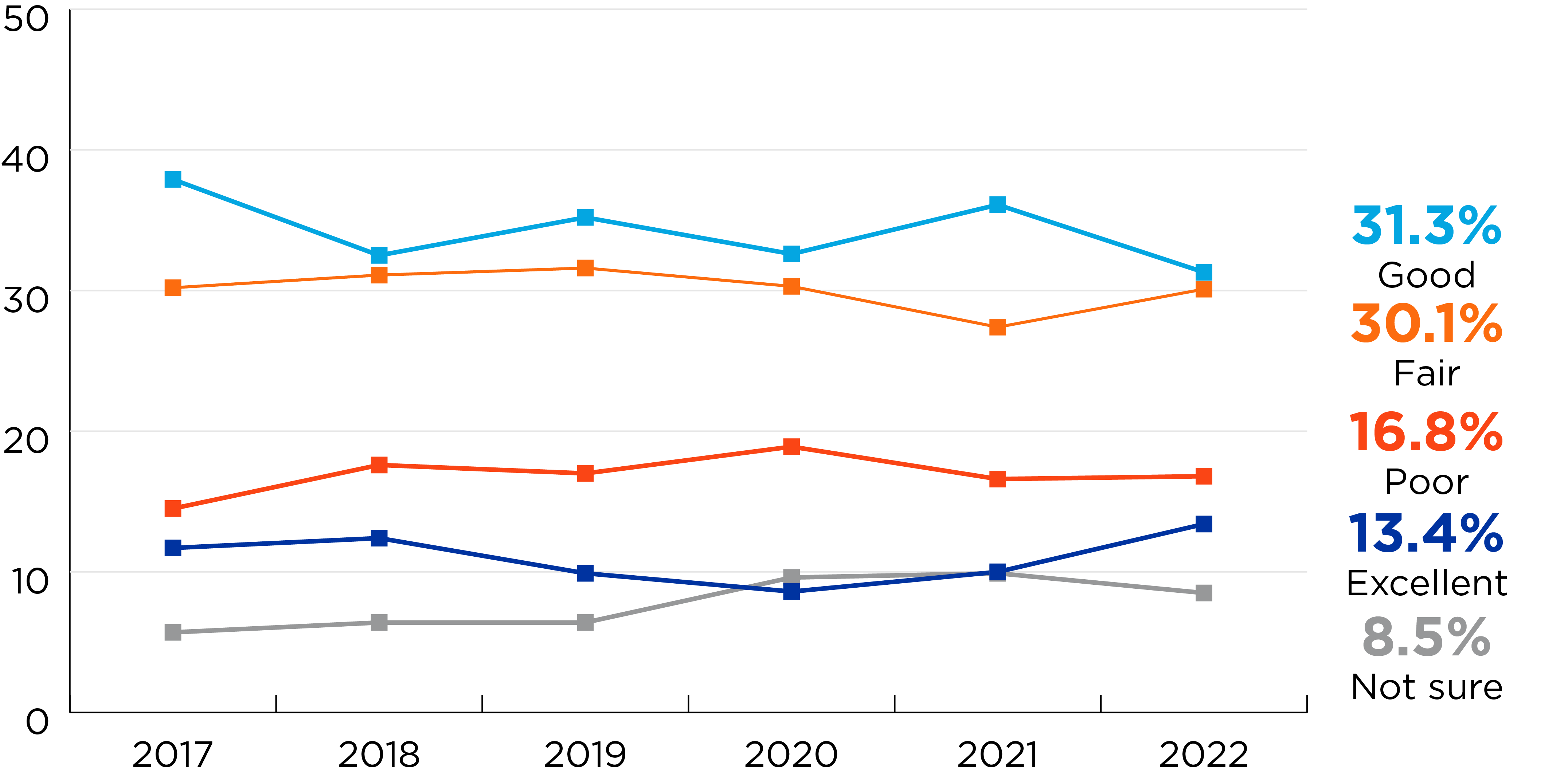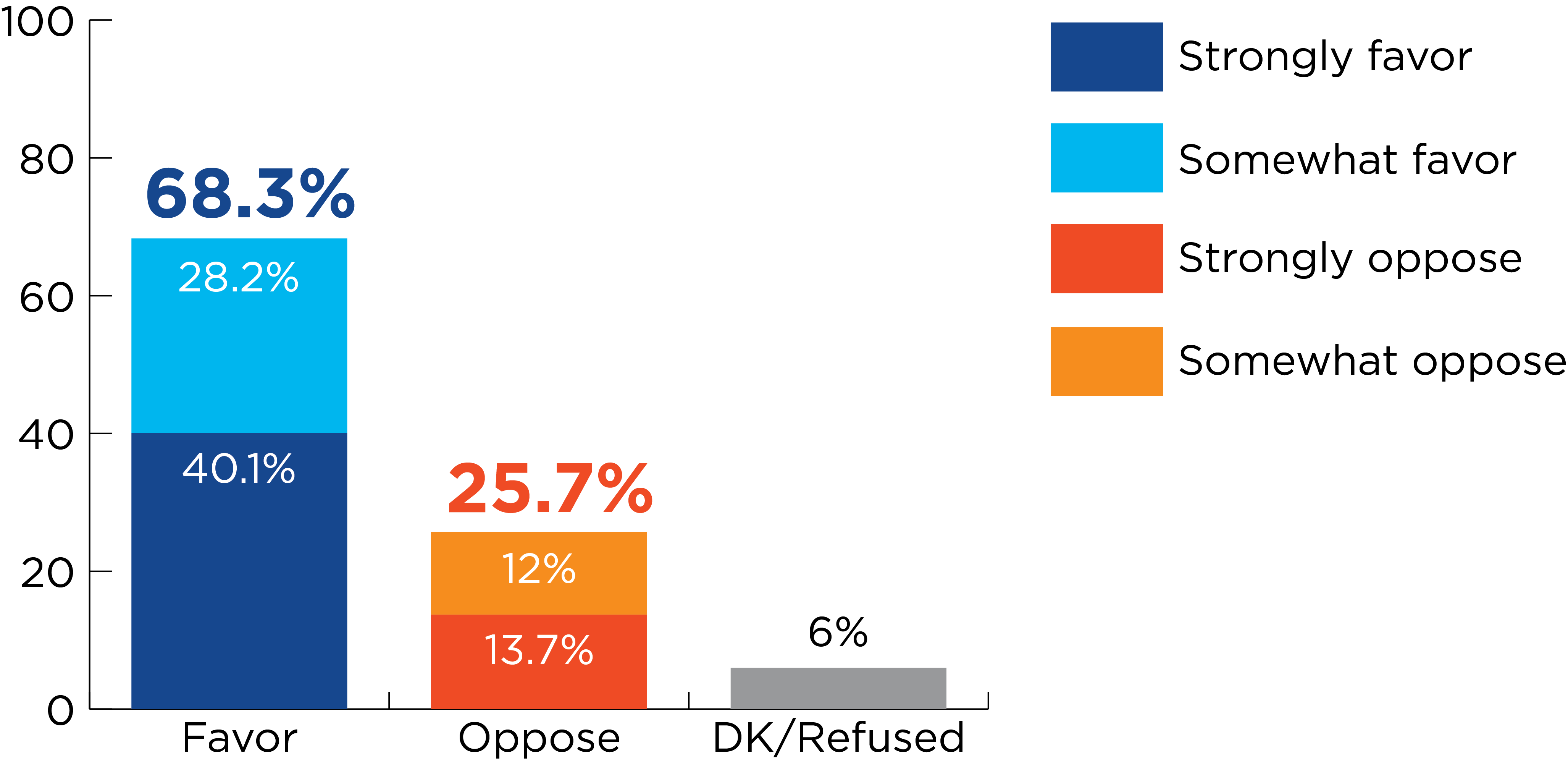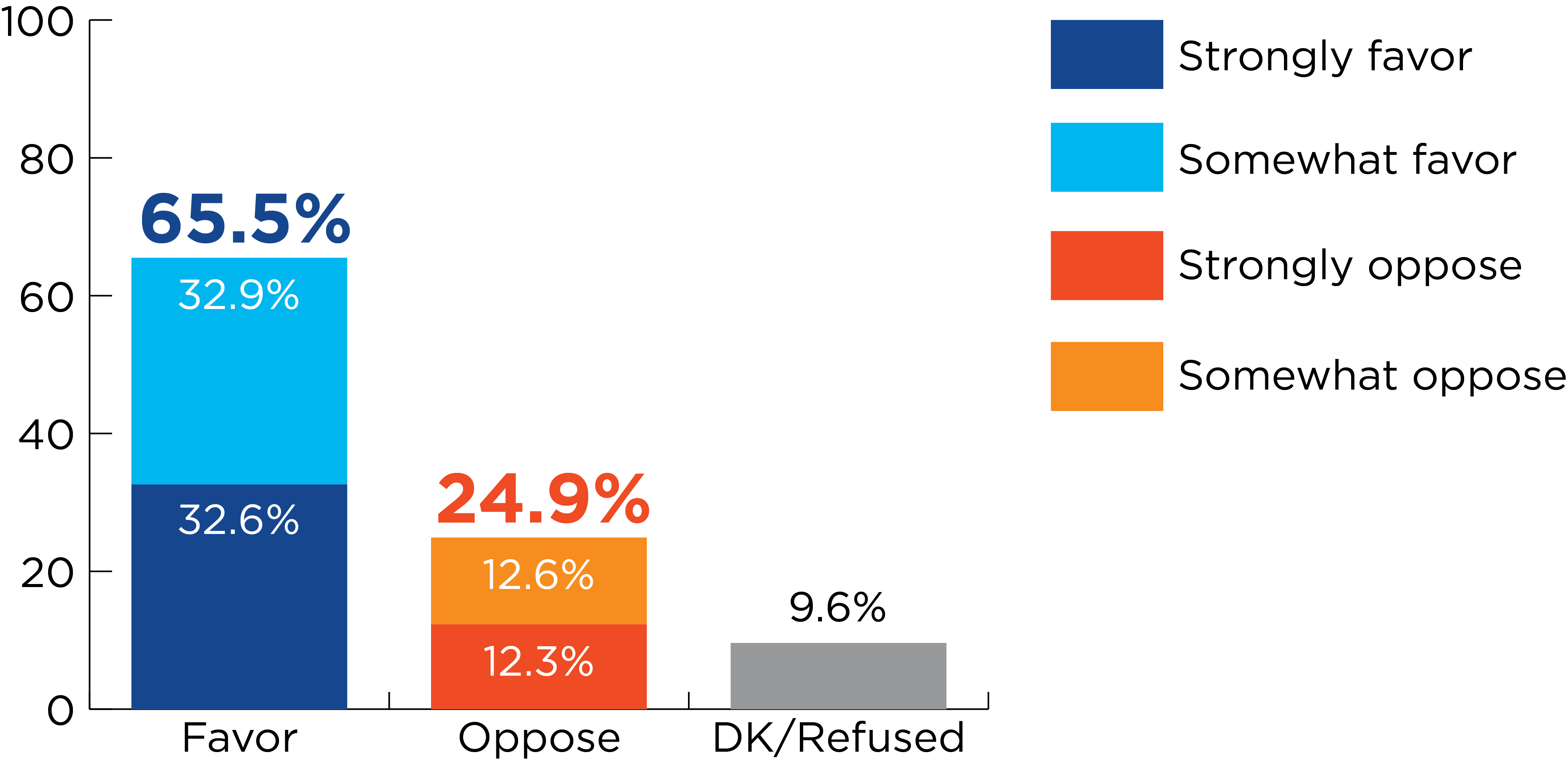Education remains a major concern for Idahoans, as evidenced by its consistent ranking as a top legislative priority each year. About 44% of respondents had a K-12 aged child or grandchild currently in Idaho schools. We asked all respondents to rate the quality of K-12 education in Idaho statewide and in their district specifically using a scale of excellent, good, fair, or poor.

In terms of the statewide system, a third of Idahoans (33%) perceive the quality of K-12 education as fair, while a quarter each believe it is poor (26%) or good (26%). About 8% of Idahoans believe it is excellent. These numbers are similar to last year, with the proportion who consider it excellent seeing the most movement with a nearly four-point increase. Since 2019, good and poor have alternated places as the second highest rating, with the two essentially tied this year.
Similar to prior years, Republicans generally had a more positive view of K-12 education in the state than other party identifications – 43% of Republicans consider it excellent or good, compared to 33% of Democrats and 28% of Independents. Additionally, those who currently have children or grandchildren in K-12 schools in Idaho have a more positive attitude, with 38% considering the state’s schools good or excellent, compared to 30% of those without children or grandchildren.

Idahoans continue to have a more favorable opinion of K-12 schools when asked about their own school districts. Most perceive the quality of education in their school district as good (31%) or fair (30%). While this is consistent with prior findings, the gap between the two ratings is tightening compared to previous years. The remainder of Idahoans are split between rating the quality of their district’s education as poor (17%) or excellent (13%).
Perceptions among Republicans are again more positive, with 50% saying schools in their district are good or excellent compared to 43% of Democrats and 41% of Independents. Once more, those with children or grandchildren in Idaho K-12 schools are more positive, with 48% rating their district’s schools as excellent or good, compared to 42% of those without.

Shifting to specific policy proposals, much attention has been on whether the state should increase education funding to school districts so that they can offer full-day kindergarten. We asked Idahoans if they would favor or oppose this approach. Results were very favorable, with 68% of Idahoans favoring the plan compared to 26% opposed. While Democrats are most favorable (89%), support exceeded 60% for all party identifications – including Republicans (61%) and Independents (69%) – suggesting strong bipartisan support for full-day kindergarten in Idaho. Having a child or grandchild in Idaho schools did not appear to affect the likelihood of one’s response, as 68% of both groups favored the proposal.

We also asked Idahoans if they would favor or oppose a plan for the state to offer an incentive or grant for private businesses to provide on-site daycare to allow for more flexibility in the workforce. Again, a majority of respondents (66%) indicated they favor such a plan, while 25% opposed. Support once more exceeded 60% for all political identifications, with Democrats (80%) most in favor, followed by Independents (64%) and Republicans (61%).